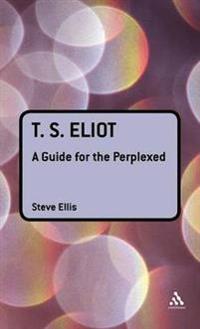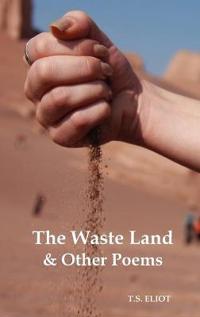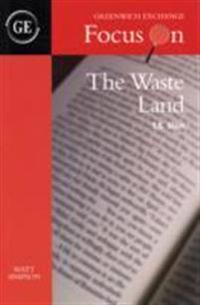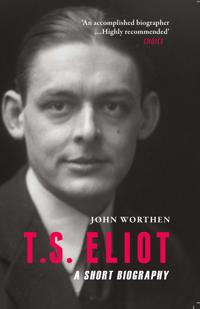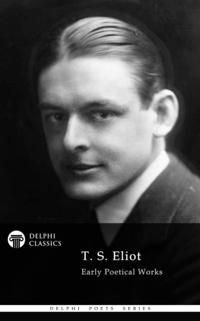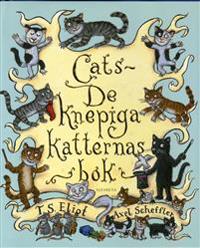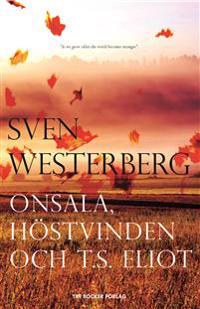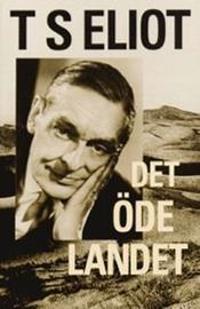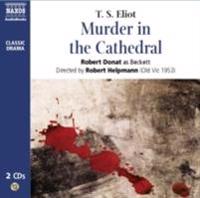T. S. Eliot: A Guide for the Perplexed (Inbunden)
avSteve Ellis
ISBN: 9781847060167 - UTGIVEN: 2009-08T. S. Eliot is one of the most celebrated twentieth-century poets and one whose work is practically synonymous with perplexity. Eliot is perceived as extremely challenging due to the multi-lingual references and fragmentation we find in his poetry and his recurring literary allusions to writers incl[...]
T. S. Eliot: A Guide for the Perplexed (Pocket)
avSteve Ellis
ISBN: 9781847060174 - UTGIVEN: 2009-08-25T S Eliot is one of the most celebrated twentieth-century poets and one whose work is practically synonymous with perplexity. This guide to the complexities of Eliot's poetry, features an easy to follow structure and contains chapters on Eliot's major texts, in chronological order.[...]
T.S. Eliot (Häftad)
avJohn Worthen
ISBN: 9781906598860 - UTGIVEN: 2011-06Biographical writing about Eliot is in a more confused and contested state than is the case with any other major twentieth-century writer. No major biography has been released since the publication of his early poems, "Inventions of the March Hare," in 1996, which radically altered the reading publi[...]
Collected Works of T. S. Eliot
ISBN: 9781910630624 - UTGIVEN: 2015-10Celebrated as one of the most influential writers of the Modernist movement, T. S. Eliot was awarded the Nobel Prize in Literature for his outstanding contribution to poetry. The Delphi Poets Series offers readers the works of literature's finest poets, with superior formatting. This volume presents[...]
Cats - de knepiga katternas bok (Inbunden)
avT. S. Eliot
ISBN: 9789150111781 - UTGIVEN: 200908Den världsberömde och nobelprisbelönade författaren T.S. Eliot skrev inte bara storslagna diktverk som Det öde landet. Han tyckte också mycket om att skriva för barn. De dikter han skrev till sina gudbarn blev till slut boken De knepiga katternas bok (publicerades första gången 1939). Boken[...]
Onsala, höstvinden och T.S. Eliot (Inbunden)
ISBN: 9789170297205 - UTGIVEN: 201207Rättspykiatriker Hanna Skogholm visste inte vad som väntade henna den höstdag hon körde ner till Onsala.
"Den gångna hösten där nere på Onsalahalvön ligger nära i tid.
Denna höst med sina färger, höstvindar, ängar och havsluft med skriande måsfåglar över Gotts�[...]Det öde landet (Häftad)
avT. S. Eliot
ISBN: 9789177422228 - UTGIVEN: 200410T S Eliots inflytelserika diktverk Det öde landet i nyöversättning.
The Waste Land/Det öde landet utkom samma år som James Joyces nydanande roman Ulysses/Odysseus ? 1922. Båda har idag position som milstolpar i litteraturhistorien.
Eliot skrev sin dikt med ett krigshär[...]Murder in the Cathedral (CD-bok)
avT. S. Eliot
ISBN: 9789626349847 - UTGIVEN: 200907T. S. Eliot's "Murder in the Cathedral" is both a fascinating retelling of the twelfth-century assassination of Archbishop Thomas Becket and a compelling call for resistance in the face of intimidation. Written against the backdrop of rising Fascism in twentieth-century Europe, Eliot's classic verse[...]

